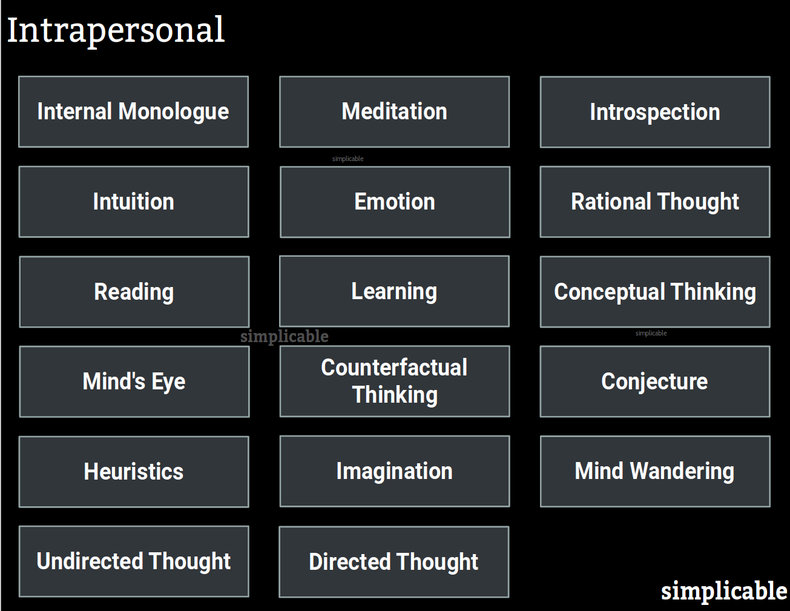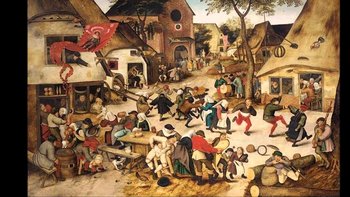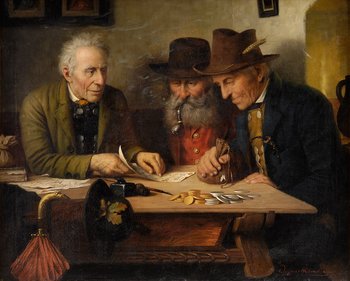

Internal Monologue
The use of language to form conscious thought. It is common for individuals to report a running monologue that runs the entire time the individual is awake when they aren't talking to someone.Meditation
The ability to silence your internal monologue to experience other types of consciousness.Introspection
The ability to examine your own character, spirit, thoughts, emotions and behavior.Intuition
High speed intelligence that is delivered by your unconscious without you having any way of knowing how it was formulated.Emotion
A mental state that colors the thoughts of an individual at a point in time.Rational Thought
Organized and focused thought with a goal such as planning, problem solving and decision making.Reading
The process of reading to yourself.Learning
The process of learning such as memorization of knowledge before a test.Conceptual Thinking
The ability to think in abstract concepts. For example, a student who thinks about how much they value freedom before accepting a job that is particularly demanding and strict. In this case, freedom is an abstract idea that has no tangible form.Mind's Eye
Visualizing the past or imagining the future as a series of visual scenes. It is also possible to solve problems by visualizing ideas including abstractions.Counterfactual Thinking
Thinking about how the past could have been different. This can be viewed as a waste of time as the past can't be changed. However, it may also serve as training as a means to learn from the past.Conjecture
Predicting, estimating and approximating when you are missing information. For example, imagining what a new job will be like.Heuristics
The use of quick approximations that aren't completely accurate. For example, the assumption that a Canadian probably likes ice hockey.Imagination
The ability to see beyond current realities to invent elements that don't yet exist.Mind Wandering
Allowing your mind to think about ideas that are unrelated to the current moment. For example, thinking about your plans for the weekend in the middle of a conversation with your boss.Undirected Thought
An internal monologue that is repetitive and unproductive such as thinking about a minor insult over and over again in your mind.Directed Thought
An internal monologue that progresses towards a goal. For example, thinking about a purchasing decision to model trade-offs in terms of your needs and product attributes to arrive at a reasonable choice.| Overview: Intrapersonal | ||
Type | ||
Definition (1) | All that occurs or exists within a person. | |
Definition (2) | Thoughts, language and emotion that occur when an individual is thinking independently alone as opposed to engaging in a social process of communication and collaborative thought. | |
Opposite Of | Interpersonal | |
Related Concepts | ||


































